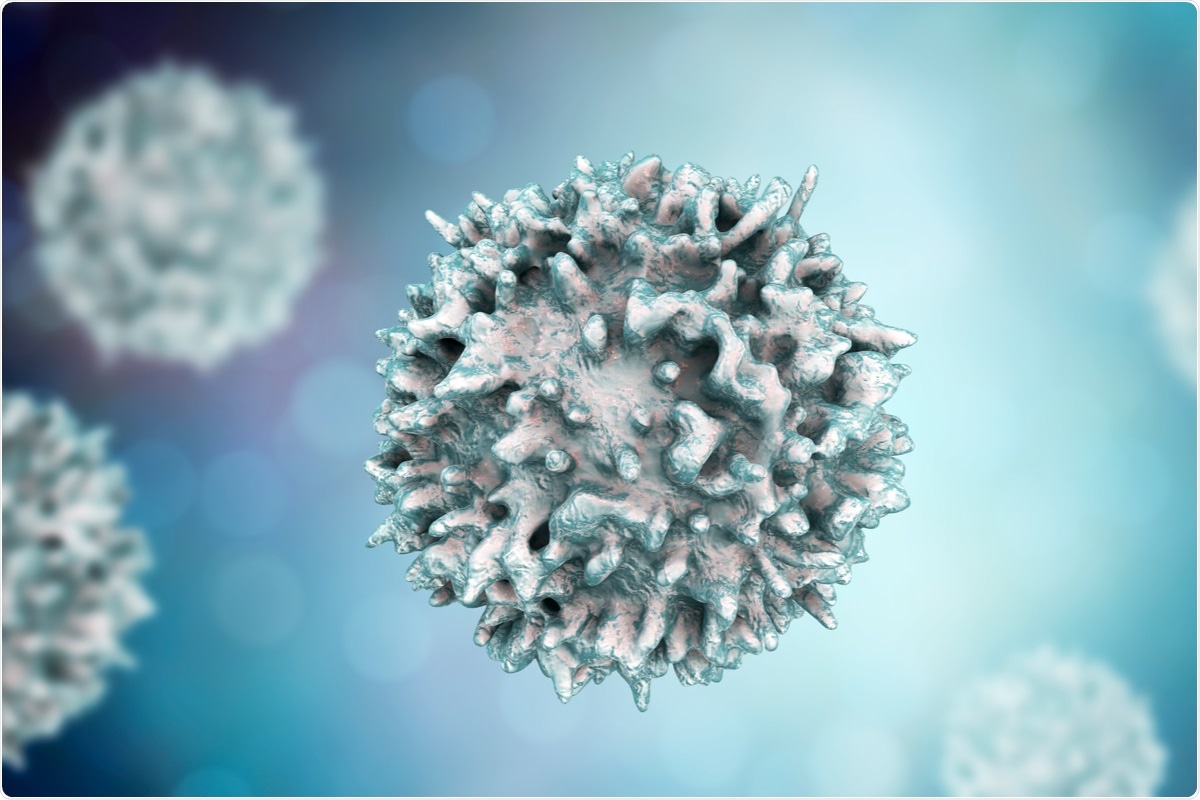Scientists from the Johns Hopkins University School of Medicine, USA, have investigated the pattern of immune responses induced by coronavirus disease 2019 (COVID-19) vaccines in multiple sclerosis (MS) patients receiving anti-CD20 therapy. As detailed in the study that is currently available on the medRxiv* preprint server, they have observed that these patients exhibit a robust T cell response despite a reduced humoral response to vaccines.
 Study: Discordant humoral and T cell immune responses to SARS-CoV-2 vaccination in people with multiple sclerosis on anti-CD20 therapy. Image Credit: Kateryna Kon/ Shutterstock
Study: Discordant humoral and T cell immune responses to SARS-CoV-2 vaccination in people with multiple sclerosis on anti-CD20 therapy. Image Credit: Kateryna Kon/ Shutterstock

 This news article was a review of a preliminary scientific report that had not undergone peer-review at the time of publication. Since its initial publication, the scientific report has now been peer reviewed and accepted for publication in a Scientific Journal. Links to the preliminary and peer-reviewed reports are available in the Sources section at the bottom of this article. View Sources
This news article was a review of a preliminary scientific report that had not undergone peer-review at the time of publication. Since its initial publication, the scientific report has now been peer reviewed and accepted for publication in a Scientific Journal. Links to the preliminary and peer-reviewed reports are available in the Sources section at the bottom of this article. View Sources
Background
Therapeutic interventions against MS are known to cause immune suppression, and thus, indirectly increase the risk of severe acute respiratory syndrome coronavirus 2 (SARS-CoV-2) infection and severe COVID-19. According to available literature, MS patients receiving certain disease-modifying treatments, including anti-CD20 therapies and sphingosine-1-phosphate (S1P)-receptor modulators, may have reduced antibody responses to various existing including COVID-19 vaccines. In contrast, evidence suggests that T cell responses to most of the common vaccines can be maintained in patients receiving anti-CD20 therapies.
In the current study, the scientists have investigated both humoral and T cell immune responses to COVID-19 vaccines in MS patients receiving anti-CD20 therapies or other disease-modifying treatments.
Study design
One hundred and one multiple sclerosis patients who received Pfizer, Moderna, or Johnson & Johnson vaccines were enrolled for the study. Of them, 39 were on anti-CD20 therapy, three were on S1P receptor modulating therapy, and 60 were on other types of disease-modifying therapies (injectables, natalizumab, and non-S1P modulating oral therapies) or no therapy.
Blood samples were collected from the participants four to eight weeks after the final vaccine dose and analyzed for IgG-specific anti-spike S1 antibodies. Similarly, peripheral blood mononuclear cells isolated from blood were analyzed for spike-specific interferon gamma (IFN-γ)-secreting T cell responses.
Humoral immune response
About 56% and 33% of participants on anti-CD20 therapy and S1P receptor modulating therapy, respectively, exhibited antibody responses to COVID-19 vaccines. In contrast, about 94% of participants on other disease-modifying therapies or no therapy exhibited vaccine-induced antibody responses.
Specifically, vaccine-induced antibody responses were observed in 100% of participants who were on injectables or natalizumab, and in 86% of participants who were on other types of disease-modifying therapies. Similarly, all participants who were not receiving any therapy showed robust antibody responses to COVID-19 vaccines.
Cell-mediated immune response
Overall, a robust T cell immune response to COVID-19 vaccines was observed in most participants (86%) receiving either of the mentioned therapies. Interestingly, about 97% of participants on anti-CD20 therapy exhibited spike-specific T cell response, with significantly higher numbers of IFN-γ-secreting cells than that observed in participants receiving other disease-modifying therapies or no therapy.
Study significance
The study reveals an important finding that MS patients receiving immunosuppressive treatments, including anti-CD20 therapy, exhibit a strong T cell response to COVID-19 vaccines, despite a reduced antibody response.
Compared to other disease-modifying therapies, anti-CD20 therapy is associated with a more robust T cell response in MS patients. In contrast, non-anti-CD20 therapies are associated with both humoral and cellular immune responses to COVID-19 vaccines.
Since B cells are required to produce antibodies and activate CD4+ and CD8+ T cells, B cell-depleting therapies like anti-CD20 therapies are expected to suppress both humoral and T cell responses. However, a robust T cell response observed in patients with anti-CD20 treatment could be due to the depletion of regulatory B cells involved in the inhibition of T cell activation. Another reason could be the alleviation of B cell-mediated regulatory T cell activation.
Other studies show that a robust T cell response induced by natural infection is associated with lower COVID-19 severity. Given this observation, the scientists suggest that MS patients receiving anti-CD20 therapy could still achieve some level of protection from vaccination even in the absence of sufficient antibody response.

 This news article was a review of a preliminary scientific report that had not undergone peer-review at the time of publication. Since its initial publication, the scientific report has now been peer reviewed and accepted for publication in a Scientific Journal. Links to the preliminary and peer-reviewed reports are available in the Sources section at the bottom of this article. View Sources
This news article was a review of a preliminary scientific report that had not undergone peer-review at the time of publication. Since its initial publication, the scientific report has now been peer reviewed and accepted for publication in a Scientific Journal. Links to the preliminary and peer-reviewed reports are available in the Sources section at the bottom of this article. View Sources
Journal references:
- Preliminary scientific report.
Gadani, S. et al. (2021) "Discordant humoral and T cell immune responses to SARS-CoV-2 vaccination in people with multiple sclerosis on anti-CD20 therapy". medRxiv. doi: 10.1101/2021.08.23.21262472. https://www.medrxiv.org/content/10.1101/2021.08.23.21262472v1
- Peer reviewed and published scientific report.
Gadani, Sachin P., Maria Reyes-Mantilla, Larissa Jank, Samantha Harris, Morgan Douglas, Matthew D. Smith, Peter A. Calabresi, Ellen M. Mowry, Kathryn C. Fitzgerald, and Pavan Bhargava. 2021. “Discordant Humoral and T Cell Immune Responses to SARS-CoV-2 Vaccination in People with Multiple Sclerosis on Anti-CD20 Therapy.” EBioMedicine 73 (November): 103636. https://doi.org/10.1016/j.ebiom.2021.103636. https://www.thelancet.com/journals/ebiom/article/PIIS2352-3964(21)00429-1.